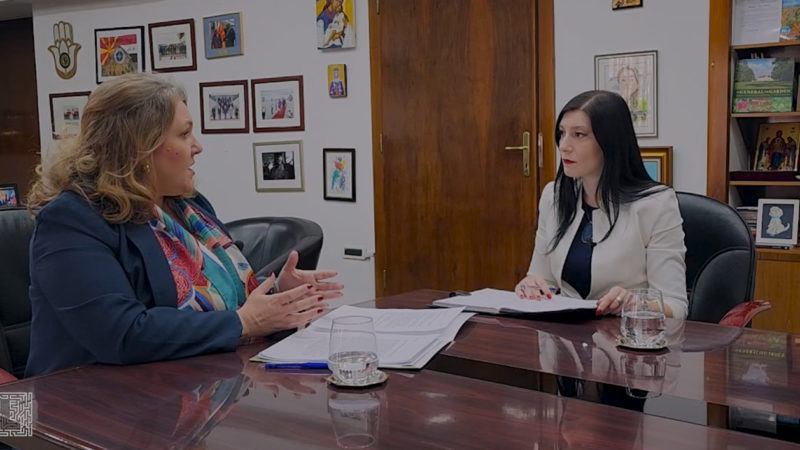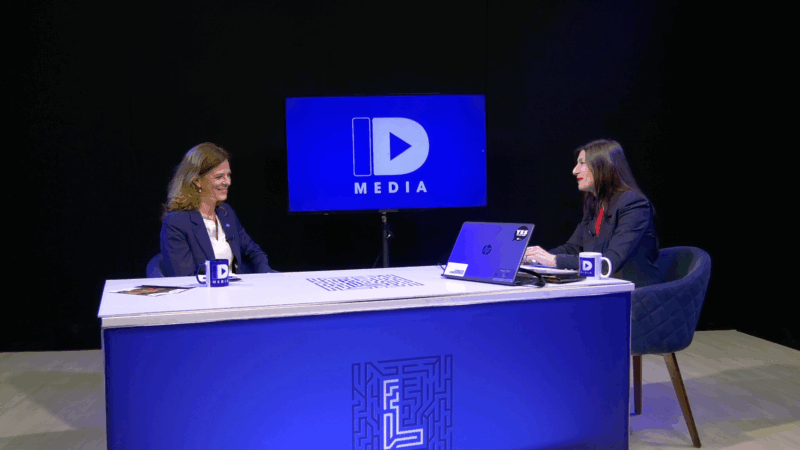The Serbian opposition is asking for help from the EU, and the Russians are leaving the country to save themselves from mobilization.
The coalition "Serbia against violence" took the battle against election violence to the European institutions, and that's why the hunger strike was worth it, says MP Marinika Tepic. In Labyrinth, she emotionally talks about the price the whole family pays for her fight against crime and corruption. We also discuss the Belgrade-Prishtina dialogue, for which she does not expect a solution while Aleksandar Vucic is in power, because she believes that he is one of the instigators of the problem and cannot be part of the solution. Regarding the issue of sanctions against Russia, Tepic says that Serbia has European aspirations and as such should align its foreign policy with EU’s.
The journalist and researcher, Vladislav Ivanets, who does not return to Russia to avoid mobilization, is also a guest in Labyrinth. He says that civil society does not support the invasion of Ukraine, and anyone who dares to say so risks many years in prison. Independent media works only from exile. Due to Putin's draconian laws that have been phased in since 2012 (the Foreign Agents Act), Ivanets says that anyone in Russia can be prosecuted. As for the upcoming elections, it is certain that Putin will win because anti-war candidates have been eliminated from the race. Regarding Putin's last interview, he believes that it did him no favors in front of the domestic public.
You Might also like
-
Petrovska: Every unresolved issue is an opportunity for Russia to destabilize the Balkans
Interview with the Minister of Defense Slavjanka Petrovska
-
Democracy should rely on active and organized citizens – says Ambassador Hulman
Interview with the Ambassador of Switzerland, Veronique Hulmann
Macedonian-Swiss friendship has lasted for more than 30 years, says the Ambassador of Switzerland, Veronique Hulmann, in a guest appearance at Labyrinth. We discussed the new cooperation program launched by the Embassy of Switzerland, as well as the experience with Macedonian institutions so far. We discussed the three areas in which Switzerland helps North Macedonia, democracy, economic development and the environment, and we asked the Ambassador what her favorite place for hiking in the country is.
Watch the full interview.
Post Views: 751 -
The challenges before the European Union in the post-covid era
Analysis of the developments in Europe in the face of military conflicts, economic problems and social post-covid consolidation.
The Ervopeum forum, which was organized by the Institute for European Politics, gave an overview of the current situation with the mechanisms for the rule of law in the EU and the mechanism for the growth of the union, within which the progress of many aspirants on the way to the EU was considered when it comes to governance of law.
Such events have for the overall promotion of the reforms that even more candidates can undertake before the membership, making the forces candidates for implementing reforms with the aim of Europeanizing the social-institutional environment in these countries.
The road to the Union is paved with the successfully implemented reform, but is Macedonia on the road to the EU?
Can Macedonia defeat corruption, which is the main problem of the state when it comes to Europeanization?
How to free the judiciary from the chain of political and business entrapment - Laws are in powers, but how are they implemented?
Watch the new edition of Labyrinth and find out what's next in the battle for EU membership, where Macedonia is on the map and will the right path to integration emerge? Our guest in this issue is Beba Žagar from the Institute for European Politics.
Post Views: 1,029





